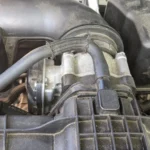
What are Spark Plugs in the Car and What does a Spark Plug do?
In the world of automotive engineering, spark plugs play a vital role in the functioning of a car’s engine. While seemingly small and inconspicuous, these tiny devices are responsible for igniting the air-fuel mixture inside the engine cylinders, creating the necessary combustion to power the vehicle. In this article, we will delve into the details of what spark plugs are, how they work, and their significance in the overall performance of a car.
Understanding Spark Plugs
A spark plug is a cylindrical component made of metal, typically with a ceramic insulator in the center. It is screwed into the engine cylinder head and is connected to the ignition system. Each cylinder in an internal combustion engine has its own spark plug.
The spark plug consists of several key parts, including the center electrode, ground electrode, insulator, and metal shell. The center electrode is connected to the ignition coil, while the ground electrode is positioned at the tip of the plug, creating a small gap between the two electrodes.
How Spark Plugs Work
When the engine is running, the spark plug receives an electrical current from the ignition system. This current creates a high voltage between the center and ground electrodes, resulting in a spark across the gap. This spark ignites the air-fuel mixture inside the cylinder, initiating the combustion process.
The timing and intensity of the spark are crucial for efficient engine operation. Spark plugs are designed to generate a spark at the precise moment when the piston reaches the top of its compression stroke. This ensures maximum power output and fuel efficiency.
The Importance of Spark Plugs
Spark plugs are essential for the smooth and reliable operation of a car’s engine. They play a crucial role in maintaining the overall performance and fuel efficiency of the vehicle. Here are some key reasons why spark plugs are important:
1. Ignition of Air-Fuel Mixture
Spark plugs are responsible for igniting the air-fuel mixture inside the engine cylinders. Without a spark, the fuel would not combust, rendering the engine useless. Properly functioning spark plugs ensure that the combustion process occurs as intended, providing the necessary power to propel the vehicle.
2. Fuel Efficiency
Efficient combustion leads to better fuel efficiency. When spark plugs generate a strong and consistent spark, the air-fuel mixture burns more completely, extracting maximum energy from the fuel. This not only improves mileage but also reduces emissions, contributing to a cleaner environment.
3. Engine Performance
Spark plugs directly impact engine performance. A worn-out or faulty spark plug can lead to misfires, rough idling, and decreased power output. Regular inspection and replacement of spark plugs ensure optimal engine performance and prevent potential issues.
4. Reliable Starting
Spark plugs are crucial for the reliable starting of a car. When you turn the ignition key, the spark plug initiates the combustion process, enabling the engine to start. A worn-out spark plug can cause starting problems, leading to frustrating delays and inconvenience.
Maintaining Spark Plugs
Regular maintenance of spark plugs is essential to ensure their proper functioning. Over time, spark plugs can become fouled or worn out, affecting their performance. Here are some tips to maintain spark plugs:
1. Inspection
Periodically inspect the spark plugs for signs of wear, such as eroded electrodes or excessive carbon deposits. If any abnormalities are detected, it is advisable to replace the spark plugs.
2. Replacement
Follow the manufacturer’s recommendations for spark plug replacement intervals. Typically, spark plugs need to be replaced every 30,000 to 100,000 miles, depending on the type of plug and driving conditions.
3. Correct Installation
Ensure that the spark plugs are correctly installed and tightened to the specified torque. Improper installation can lead to poor performance and potential engine damage.
4. Use Quality Spark Plugs
Choose high-quality spark plugs that are recommended for your vehicle’s make and model. Using the right type of spark plug ensures optimal performance and longevity.
In conclusion, spark plugs are essential components in a car’s engine, responsible for igniting the air-fuel mixture and enabling combustion. Their proper functioning is crucial for engine performance, fuel efficiency, and reliable starting. Regular maintenance and timely replacement of spark plugs are necessary to ensure their optimal performance, contributing to the smooth operation of the vehicle.




